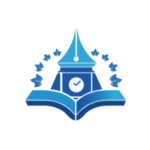Education in all its forms is one of the greatest contributors to our socialization. From the youngest age that we start school, we are learning about ourselves as much as we are learning the curricula. Children as young as four years old start to realize and actualize their gender (WATERFORD). As they continue to grow and evolve, adults and peers continue to perpetuate the differences amongst the genders and create various particular pathways according to a child’s gender. As children are figuring out who they themselves are, the people around them respond accordingly. In a study cited by Edutopia, teachers were observed to have subconsciously absorbed and practiced gender biases: “They found that starting in grade school, teachers engaged less frequently with female students, asking them fewer questions, while at the same time providing males with more feedback,” (EDUTOPIA). When these gender roles start at such a young age, they will continue to worsen as children grow into young, decision-making adults. When it comes time to choose a career path, women are much less likely to choose careers in STEM fields due to the systems in which they have been discouraged to participate in. Applying to over-subscribed majors can often lead to college admissions rejection.

Preparing for College
When students are preparing for college, their degrees often fall into categories that are supported by gender norms and expectations. The UN cites this as due to the inequalities in education from the earliest age — conditioning children to make choices in their educational career based on which fields they have received the most encouragement in. Additionally, the UN cites the demographics in different studies as vastly skewed: “There are significant inequalities in tertiary education in general, as well as in relation to areas of study, with women being over-represented in the humanities and social sciences and significantly under-represented in engineering, science, and technology,” (THE UN). Using a professional college application consultant can help move away from some of these outdated practices.
Challenging Gender Norms
In order to challenge these norms, there must be changes made from the beginning. Education can be used as a tool for gender equality. The UN also cites education as a platform to be considered from a rights perspective: “This implies that all aspects of education should be considered from a rights perspective, including structural features of education systems, methods of education, as well as the contents of the education curricula,” (THE UN). The role of reversal in this case certainly falls to teachers and creators of curricula, “Schools have the responsibility to model, teach, and create conditions in which each child’s gender diversity is accepted and nourished,” (ACSD). As the education system shifts towards a gender-equal perspective, more than just teachers must be expected to evolve as well. At the current moment, students entering college in the coming years have significant barriers to face if they are attempting to challenge gender norms in their desired professional path. Students must be encouraged not only by their guardians and teachers to pursue their desired paths of interest, but they also must be supported by their college admissions consultants in order to actualize their fullest potential.
Choose Your Path With Confidence
When students become of the age to even begin considering their collegiate path, they should have the personal autonomy and complete self-confidence that they can pursue their own interests without doubts based on subconscious, deep-rooted gender biases. With the support of college admissions consulting and formulating the strongest college admissions essay, gender discrimination in secondary and tertiary level education will be dismantled gradually. “When we achieve gender equality, all students will be free to pursue their education without fear of discrimination or harassment because of their gender,” (WATERFORD).
Sources:
https://www.un.org/en/chronicle/article/education-pathway-towards-gender-equality
https://www.ascd.org/el/articles/how-gender-disparities-affect-classroom-learning
https://www.edutopia.org/blog/gender-equity-classroom-rebecca-alber
https://www.waterford.org/education/gender-equality-in-the-classroom/
We’d love to help you choose the educational path that works best for you. Please contact us today.

All of our blog posts are written by Former College Admission Officers who serve as members of our admission consultant team.



